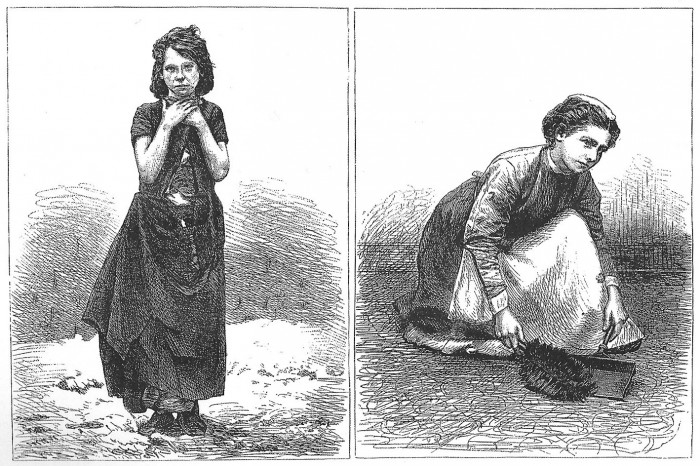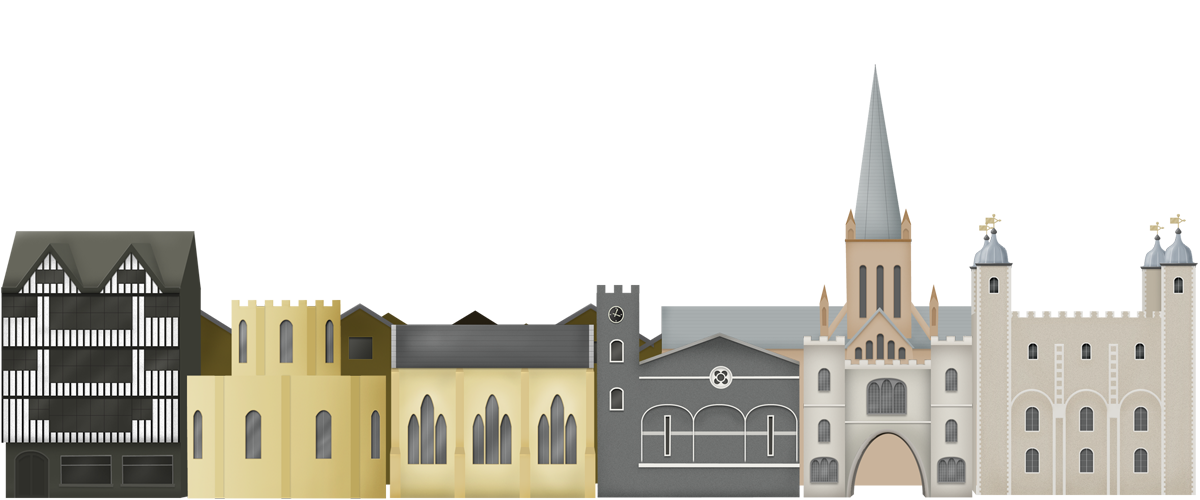Victorian Jobs
As London changed, so did the work available. By the mid nineteenth century the capital had grown but fewer people lived in the City. This meant fewer small business and shops, and much of the area had become very poor, with run-down housing and much overcrowding.
 There were still some trades that ran formal apprenticeships, but they were no longer so common. And there were now fewer training opportunities for girls.
There were still some trades that ran formal apprenticeships, but they were no longer so common. And there were now fewer training opportunities for girls.
However, there were many new kinds of business and industry – in particular the railways.
By this date most of the boys who left the school went straight into work. The most promising became messengers in offices; some went into the merchant navy or got jobs working for the railways. Almost all the girls became domestic servants or, more rarely, shop assistants. By this period, a career as a servant was usually more limiting, and it was even more important to obtain a job in a well-to-do household where promotion was possible.
 At the Cass school, the education provided was planned as fitting the children for their “station in life” During the middle years of the century, this was a conscious choice on the part of the trustees, who insisted that practical skills were more important than academic attainment, in particular for the girls.
At the Cass school, the education provided was planned as fitting the children for their “station in life” During the middle years of the century, this was a conscious choice on the part of the trustees, who insisted that practical skills were more important than academic attainment, in particular for the girls.
When education became compulsory in the 1870s, the children of the Cass school no longer had an advantage over others, as from then on all children would be able to read and write and be “presentable”.
